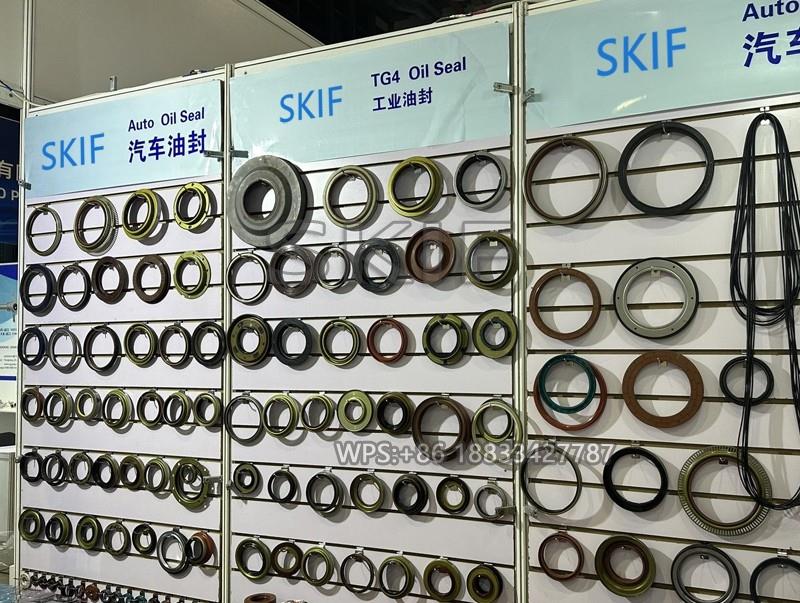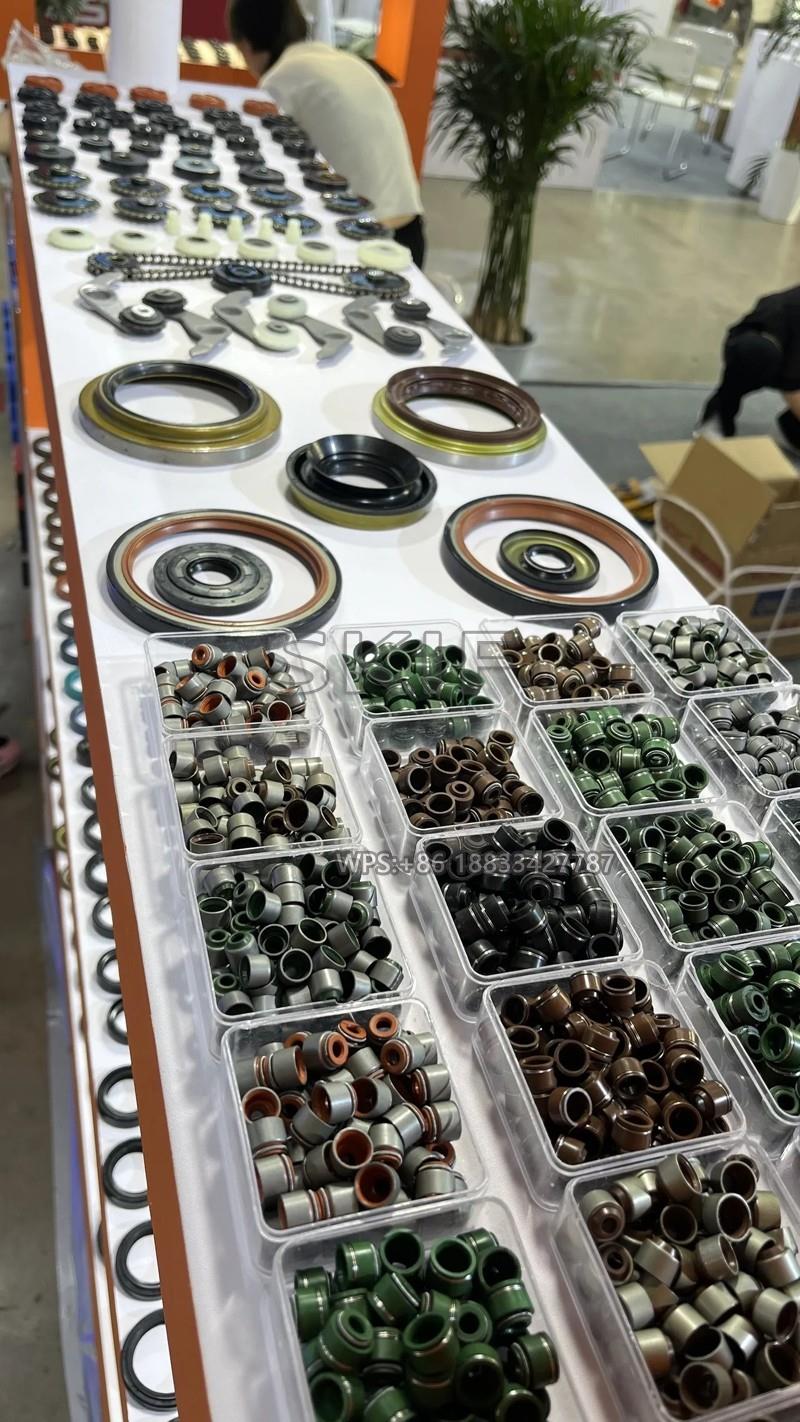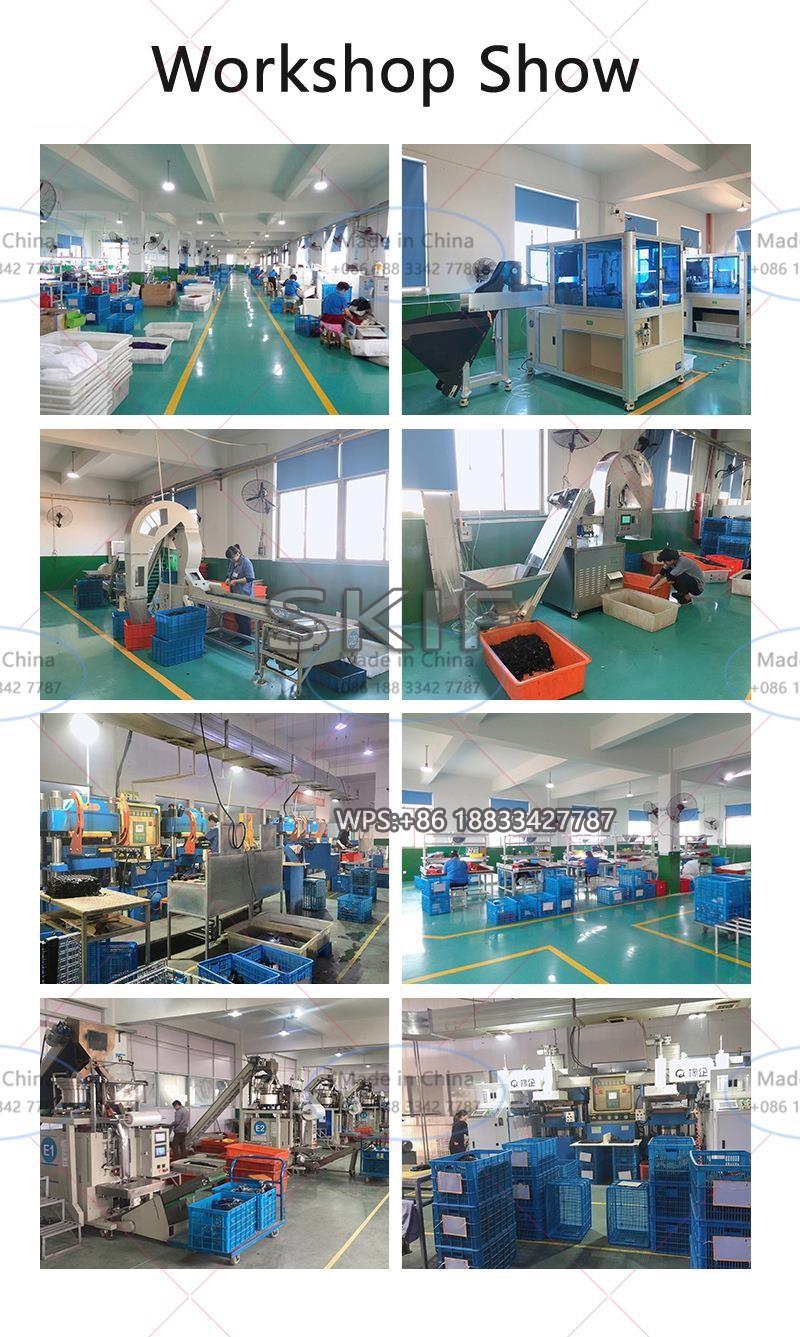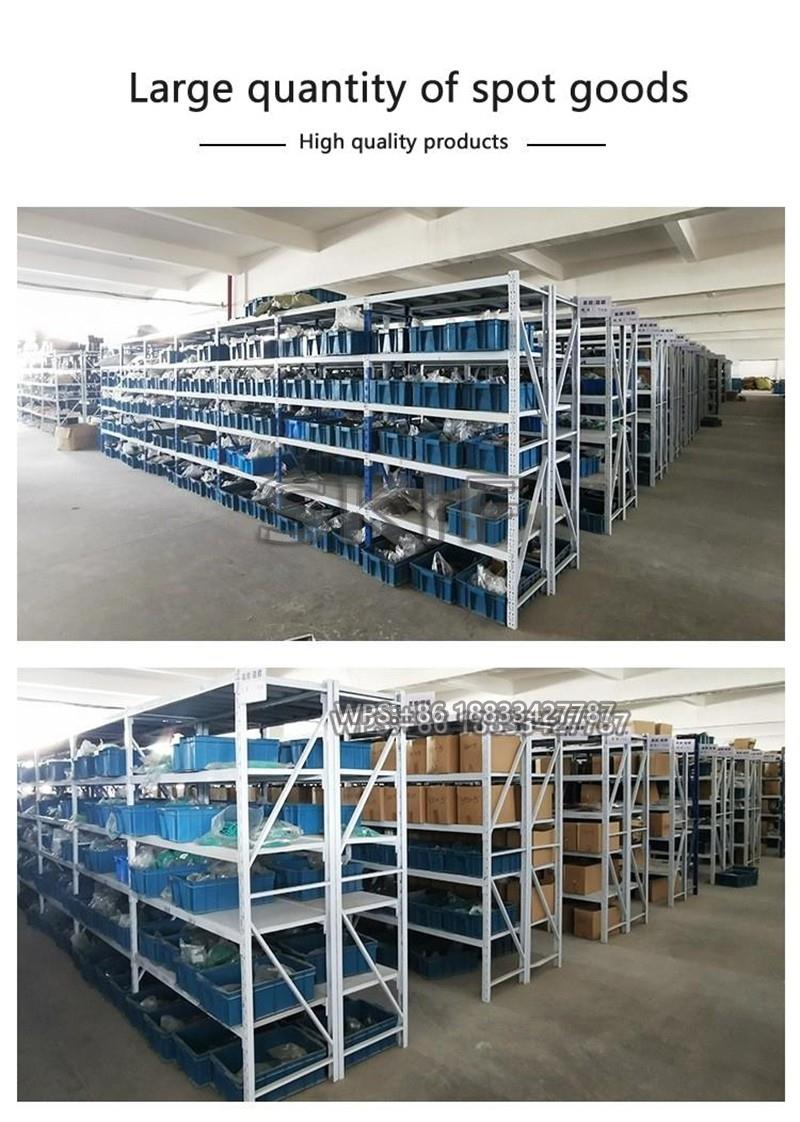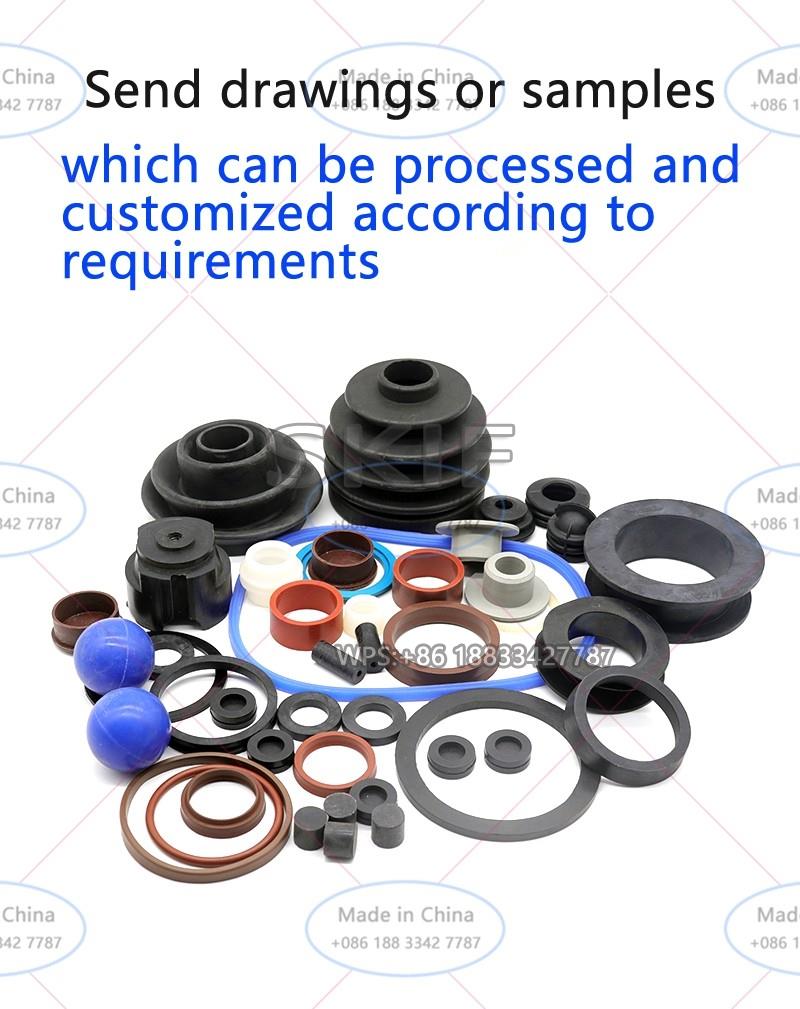The common materials for skeleton oil seals include nitrile rubber, hydrogenated nitrile rubber, fluororubber, polyurethane rubber, silicone rubber, and polytetrafluoroethylene. Nitrile rubber (NBR) is known for its wear-resistant and oil resistant properties, but it should be noted that it is not suitable for polar media and has a temperature resistance range of -40~120 ℃. Hydrogenated nitrile rubber (HNBR) is superior in wear resistance, oil resistance, and aging resistance, with a temperature range of -40~200 ℃, making it more resistant to high temperatures than NBR. FKM is resistant to acid and alkali, all types of oil, and has a temperature range of -20~300 ℃. It performs particularly well in oil resistance. Polyurethane rubber (TPU) is wear-resistant and aging resistant, with a temperature range of -20~250 ℃, and its aging resistance is particularly outstanding. Silicone rubber (PMQ) is heat-resistant and cold resistant, with minimal compression permanent deformation and slightly lower mechanical strength. However, its temperature resistance range can reach -60~250 ℃, making it very suitable for applications that require high temperature resistance. Polytetrafluoroethylene (PTFE) is known for its good chemical stability, acid and alkali resistance, wear resistance, high temperature resistance, and good self-lubricating properties, and its mechanical strength is also quite high.

